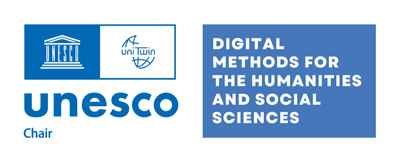ATRIUM project
ATRIUM (Advancing Frontier Research In the Arts and Humanities) is a European Commission-funded research project, launched in January 2024, which will run for four years. The project bridges four leading European Research Infrastructures: DARIAH (arts and humanities), ARIADNE (archaeology), CLARIN (languages), and OPERAS (open scholarly communication in the social sciences and humanities), and brings 17 partners and 12 affiliated entities from 12 countries across Europe.

The goal of the project is to make groundbreaking contributions to the consolidation and expansion of services, including data services, specifically in the field of archaeology. ATRIUM’s main objectives are to:
-
Enhance Access by enhancing the quality of metadata in existing catalogues and repositories;
-
Make Research Widely Available by reaching diverse communities across Europe, with a particular focus on citizen science and people with disabilities;
-
Create Workflows so that researchers can best learn how to apply digital methods to their work;
-
Facilitate Training through a number of project initiatives such as ATRIUM Skillset Assessment, ATRIUM Bridge, and ATRIUM Curriculum;
-
Establish a Peer Review Framework to maintain research outputs essential for building and maintaining research infrastructures;
-
Strengthen Data Management Practices by establishing a smooth flow of data across various services.
ATRIUM offers a series of fully-funded research placements at leading data management organisations across Europe through its Transnational Access (TNA) Scheme. Both summer school and individual placements are available. Find out more at atrium-research.eu/travel-grants
The UNESCO Chair on Digital Methods for the Humanities and Social Sciences participates in the project through various tasks, namely: communication and dissemination; fostering cross-disciplinary research through training and Open Science (ATRIUM Skillset Assessment, ATRIUM Bridge, ATRIUM Researcher Forum, and ATRIUM Curriculum); and Transnational Access (TNA).
Visit atrium-research.eu for more information.


